Alex Tisthammer
Having grown up in Colorado, traveling to milder climates always makes me envious of all the amazing plants that other states can grow with ease. Cold and fluctuating winter temperatures paired with hot dry summers present unique challenges for Colorado gardeners who have to put in the extra leg work to grow more tropical or tender plants like elephant ears, gladioli, dahlias, cannas, kitchen herbs, and geraniums.
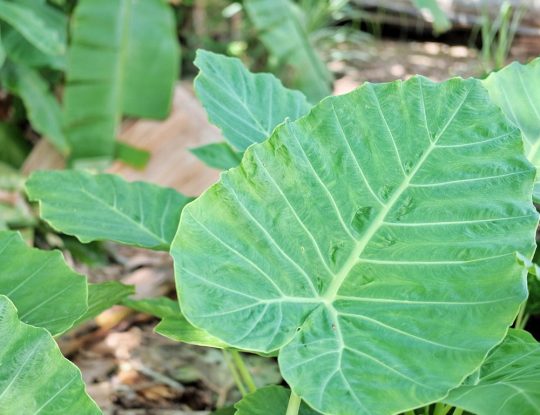
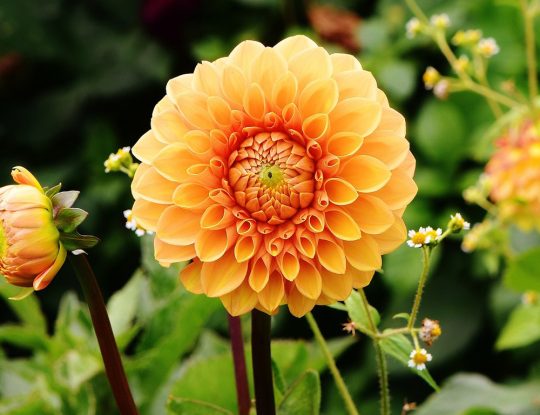
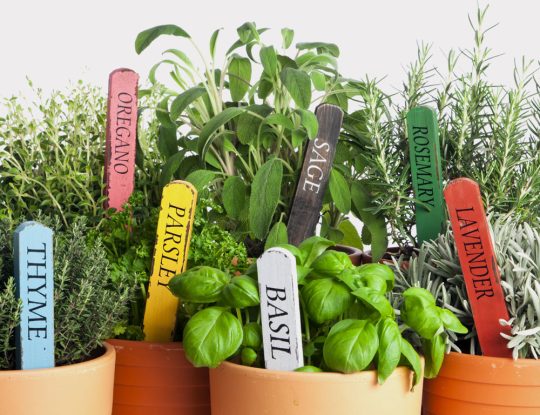

In Zone 5 or lower areas we have to “lift” certain tender tubers/bulbs (dig them up in the fall before the ground freezes), although some can be overwintered in containers. Both of these options are easy to do and can save you money when you replant them every year and split them when they get big enough.
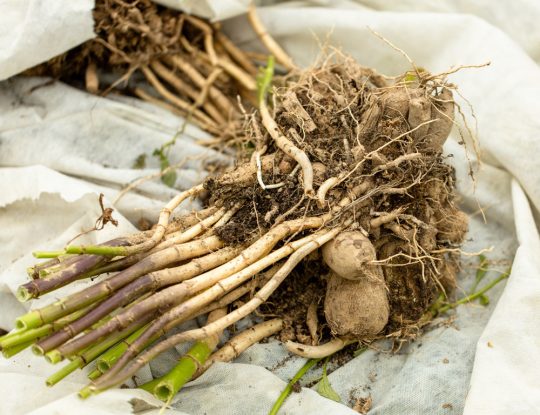
If you are lifting bulbs/tubers, the process is the same for all the different types; cannas, gladioli, dahlias, and elephant ears. Dig them up in autumn after the foliage has died but before the ground freezes, allowing them to shut down naturally. Next, cut the dead foliage back to 2″-3” and brush away most of the dirt (they don’t have to be spotless). Lay the bulbs/tubers out on newspaper, evenly spaced, in a warm dry location to cure for a week. Then find containers that aren’t air tight like crates, cardboard boxes, or mesh bags that allow air circulation. Place the bulbs in the container with a packing medium like coco coir or peat moss, being careful to not let them touch each other. Store in a cool dry place like a basement, cellar or heated garage where temperatures will stay between 40-60 degrees. Check on them periodically throughout the winter to make sure there is no mold or that they aren’t drying out too much. If they seem dry, you can spritz them lightly, but be very sparing to avoid rot. Remove any moldy ones immediately to prevent damage to the other bulbs in storage.
Canna lilies and elephant ears grown in a container can overwinter in the pot they are in, or in a plastic nursery pot. Like when you are lifting the bulbs, let them die back naturally with the colder temperatures, but before freezing temperatures. Then move them into a cooler place in your house like a garage or basement. Make sure the area gets some natural light and only water them when they are almost completely dry. Be wary when digging up elephant ears, they contain oxalic acid that can cause skin irritation or burning. When handling them, wear gloves and wash your hands afterwards.
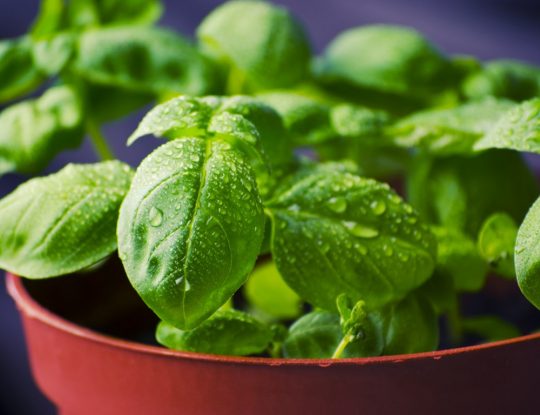
Other common tender plants, like geraniums and kitchen herbs, can overwinter in a sunny window. Harvesting fresh herbs during the winter for a snow day stew is so satisfying, plus, you’ll have bigger, more mature plants for next spring! You’ll be surprised how easy and rewarding it is to overwinter plants and how it reduces waste. With temperatures dropping, this is the time to plan which plants to save for next year!
Originally published on September 16th, 2024.
